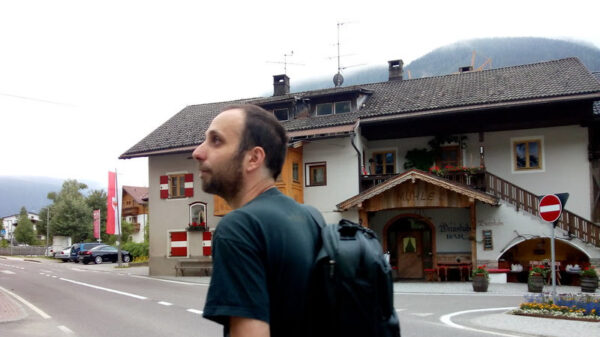 What is your position or role in the DESI project?
What is your position or role in the DESI project?
I have worked as a co-lead of the galaxy and quasar clustering working group in the past. Right now, I don’t have official managerial positions. I am supervising my students’ research and trying to figure out how to extract cosmology with higher-order clustering.
Where were you born?
I was born in the Black Sea port of Sokhumi in Georgia (the country).
Where do you live now?
I live in Manhattan, Kansas, USA
What do you do as part of DESI?
I am trying to come up with new ways of analyzing the clustering of DESI galaxies. Two directions that interest me right now are the usage of higher-order statistics and small (nonlinear) scales for cosmology. Both are very promising in terms of potential scientific yield but the methodology for dealing with them is currently not fully developed.
What is the most interesting or exciting thing about your job?
The most exciting part of my job is that I spend quite a lot of it trying to solve mathematical puzzles, something I would be willing to do for free. Another part of my job is teaching young scientists physics and math, also something that I really enjoy.
Any advice for an aspiring scientist?
When you are an undergraduate student you succeed by doing well what other people tell you to do (i.e. solving homework problems, preparing well for the test, etc.). As soon as you become a Ph.D. student, you have to realize that your professional development is now completely up to you. Take the initiative, identify things that you need in your career but don’t know well (programming? applied statistics?), and learn them. Choose research projects that you feel passionate about and work hard on completing them. Your supervisors and senior peers will be glad to advise you and help you along but you must be the one in the driver’s seat.
What do you do for fun?
I enjoy playing chess and reading history books.
If you weren’t a scientist, what would be your dream job?
If I weren’t a scientist I would probably end up being a teacher or a librarian. Or I may have chosen a career that utilizes math, e.g. actuary or an accountant.
What excites/interests you most about DESI?
What excites me most about DESI is the opportunity to work alongside the brightest minds in my field. I enjoy going to the collaboration meetings, asking questions, and coming back with the research ideas.